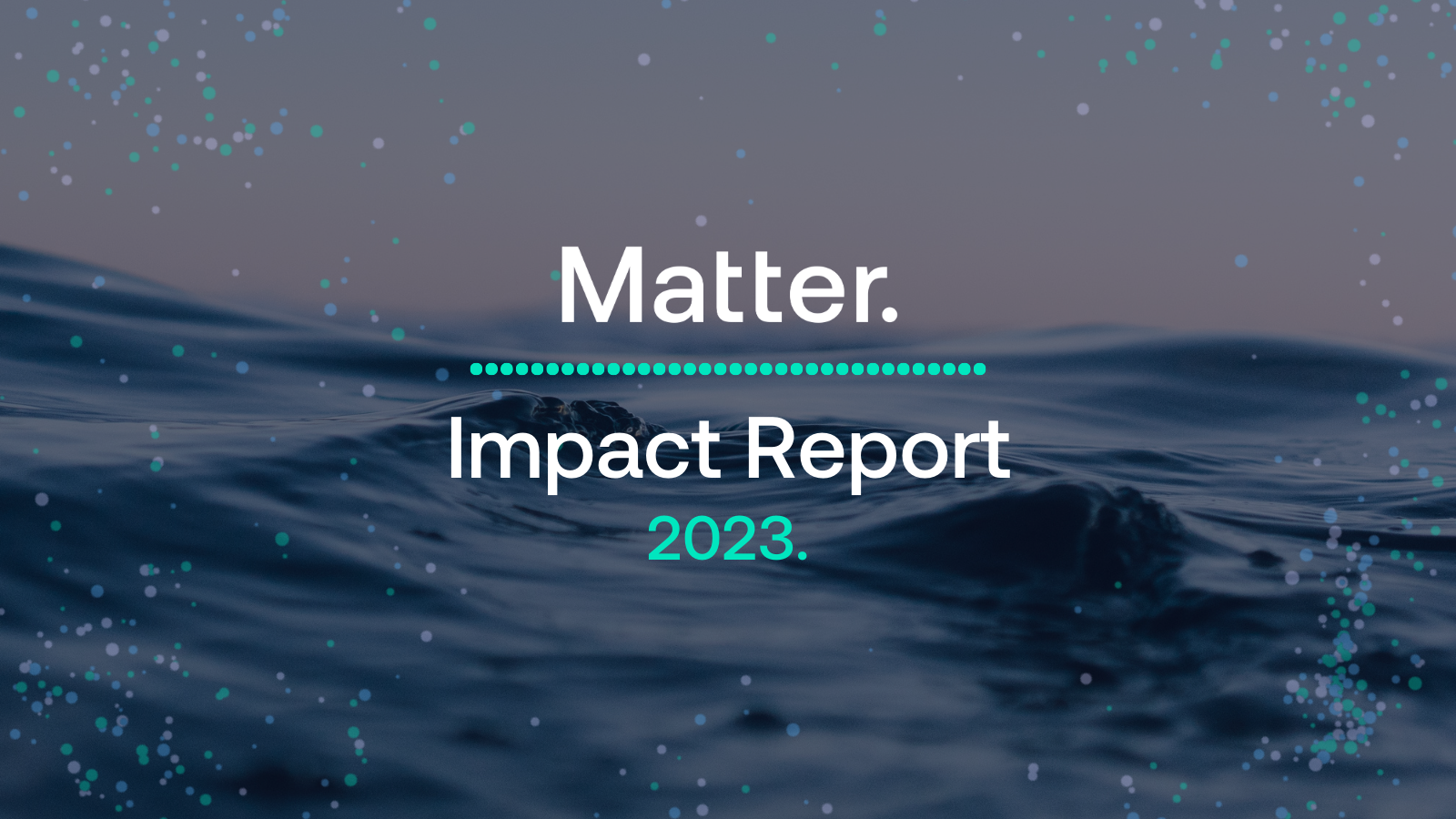Our 2023 Impact Report
We are incredibly excited to share our 2023 Impact Report.
Following the launch of our 2023 impact report, we reflect on some key insights and our approach to measuring impact as a business.
The growing threat of microplastic pollution.
As research around microplastics grow, so too does our awareness of the extent of the issue. A study in 2023 estimates the ocean is now home to a ‘plastic smog’ of more than 171 trillion microplastic particles, weighing in at 2.3 million tonnes. This figure represents a tenfold increase from the microplastic pollution levels recorded in 2005, and without solutions to stop microplastic pollution at source, this figure continues to grow.
In terms of how microplastics impacts our health, a new study conducted last year at MedUni Vienna has shown how microplastic particles manage to breach the blood-brain barrier in humans and consequently penetrate the brain. More and more research is discovering more and more consequences that are directly harming our bodies.
Matter Founder and CEO Adam Root reflects on the increasing evidence demonstrating the negative impacts of microplastic pollution and his hopes for change:
“This research, while alarming, serves as a wake-up call and will only increase awareness around the issue, which is a critical driver of change.
I hope the sense of urgency that comes with this new research will continue to increase public pressure and drive the necessary legislation to compel governments and industry to find readily available solutions to tackle this issue.
The research is a clear sign that action is not just a choice; it’s a must.”
How are we measuring impact as a business?
At the heart of our impact framework lie three core pillars: research and development (R&D), education and legislation. These pillars serve as the foundation for our efforts to create meaningful and sustainable impact in line with our vision to live in a world without micropollutants in our natural environment. In 2023, we built on our previous environmental and sustainability policy which informs our approach alongside Matter’s five-year sustainability plan.
As we scale, sustainability isn’t just a checklist for us - it’s a strategic imperative. We were founded on the principles of Cradle to Cradle in our design thinking and use the framework of B-Corp requirements to develop our business. We continue to strive to meet the standards and framework laid out in 2002 work Cradle to Cradle written by William McDonough and Michael Braungart and use their circular approach to translate our sustainability practices into five pillars at Matter.
Our latest impact report aims to present a comprehensive approach to assessing our impact as a business across both our internal and external operations. We have demonstrated this through an ‘impact roadmap’ which highlights progress that has been made across the following key areas: sustainability, footprint, education, legislation, innovation, partnerships, and our people.
Driving impact through innovation.
At Matter, we have developed innovative microplastic filtration solutions with an aim to capture and recycle microplastic fibres for the good of our planet. We are determined to maximise impact by working with partners to implement our technology and mitigate microplastic pollution across the major emission areas including laundry, textiles and wastewater.
It’s time to act.
The sense of urgency to develop solutions to stop microplastics threatening the world’s oceans and human health remains one of our core values. Our Sustainability Officer, Laura Humphreys, closes the report, saying:
“This impact report serves as a continued call to action for policymakers, industries, and communities to collaborate on more effective strategies to mitigate microplastic pollution.
To drive real impact, we must implement measures to reduce plastic consumption whilst also improving waste management practices and adopting circular solutions.
Together, we can work towards minimizing the proven adverse impacts of microplastics on ecosystems and human health.’ ”
To read the full impact report, head over to our Sustainability page or click here.






